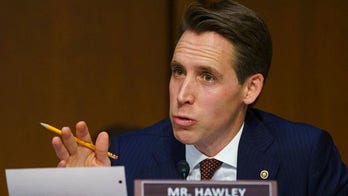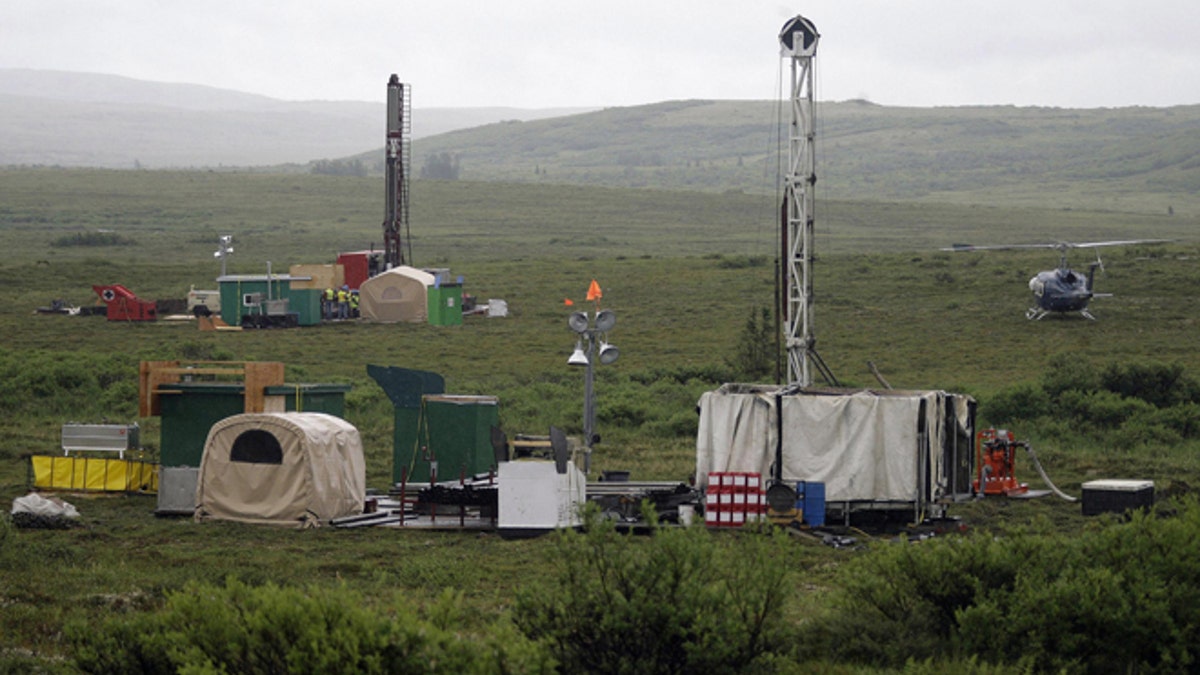
Workers with the Pebble Mine project test drill in the Bristol Bay region near the village of Iliamma. (The Associated Press)
Some Republican lawmakers and mining executives are hoping that the appointment of Scott Pruitt as administrator of the Environmental Protection Agency will reverse the agency's veto of a controversial mine in Alaska’s Bristol Bay, despite widespread local opposition to the project and a dearth of investors.
Rep. Lamar Smith, R-Texas, chairman of the House Science Committee, penned a letter last week to Pruitt that urged the new EPA administrator to rescind the 2014 veto of the Pebble Mine project amid claims that the agency overstepped its statutory authority under President Barack Obama.
“The committee has determined that the preemptive action taken for the Pebble Mine Project was unprecedented under the Clean Water Act and was justified by a questionable scientific assessment that relied on predetermined conclusions developed by EPA officials,” Smith wrote.
Smith added that rescinding the 2014 veto “will allow a return to the long-established Clean Water Act permitting process and stop attempts by the EPA to improperly expand its authority.”
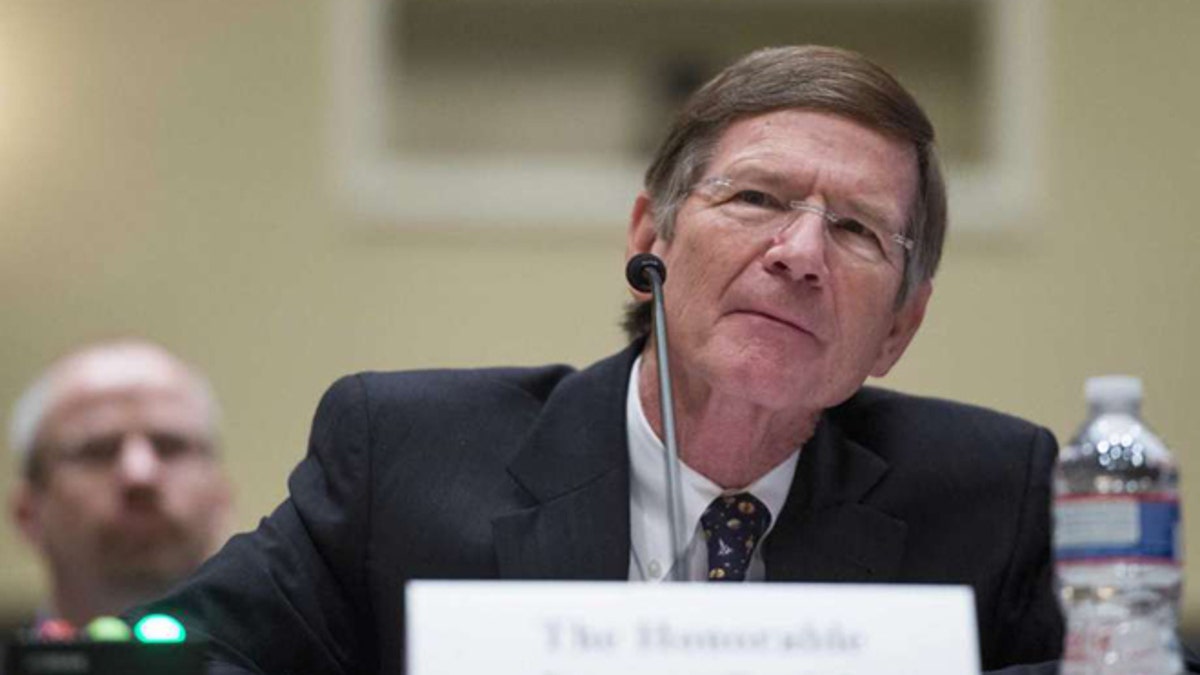
Rep. Lamar Smith of Texas (The Associated Press)
At the heart of Smith’s argument is a little-known part of the Clean Water Act called Section 404(c), which allows the EPA to “restrict, prohibit, deny or withdraw the use of an area as a disposal site for dredged or fill material if the discharge will have unacceptable adverse effects on municipal water supplies, shellfish beds and fishery areas, wildlife or recreational areas.”
The Texas lawmaker called the use of Section 404(c) “unprecedented” and argued that the EPA veto set up a “dangerous precedent” for federal agencies to sideline mining and other environmentally sensitive projects.
“The issue we’re concerned about is that there is a process that the EPA should follow in granting permits,” a House Science Committee aide who asked to remain anonymous told Fox News. “The chairman is looking to Scott Pruitt to bring back some semblance of regular order to the EPA.”
Northern Dynasty Minerals, the Canadian mining company spearheading the Pebble Mine Project, praised Smith’s letter in a press release and said the company only hoped for a fair assessment from the EPA.
"All we have ever asked is for the opportunity to propose a comprehensive development plan for the Pebble Project, and to have it fairly and objectively reviewed against the extremely rigorous environmental standards and permitting requirements enforced in Alaska and the United States,” Northern Dynasty President and CEO Ron Thiessen said in the press release. “Today, we are one step closer to earning that opportunity.”
According to environmental lawyers, however, Northern Dynasty has always been allowed to apply for a permit despite the veto from the EPA.
“Nothing in the Section 404(c) prevents the company from applying for a dredging permit,” Joel Reynolds, a senior attorney at the Natural Resources Defense Council, told Fox News. “There have been claims that the EPA has prevented the company from applying because of 404(c), but there is no rule that prevents them from applying. The owners of Pebble Mine have chosen not to apply.”
While Smith’s letter to Pruitt has once again brought Pebble Mine back into the spotlight, the chances of the mine actually becoming a reality appear far from certain.
The project may have the backing of pro-mining lawmakers in Washington who want to see the Obama-era environmental regulations rolled back, but the mine does not enjoy the same among environmentalists, Alaska’s indigenous communities and the state’s large-scale salmon fishing industry.
Pebble Mine is believed to contain some of the world’s largest deposits of copper, gold and molybdenum, but the project has been hampered for decades over concerns that toxic residue from the mine could harm the world’s largest population of sockeye salmon and endanger the 14,000 jobs and $252 million-a-year generated by the local fishing industry.
“My family has been here for generations and we rely on the salmon to feed our families and to have a livelihood,” Kimberly Williams, the executive director of the Bristol Bay nonprofit Nunamta Aulukestai, told Fox News. “Salmon fishing is not just part of my culture and history, but it provides jobs for everyone in the community and helps send people to college. The mine puts all that at risk.”
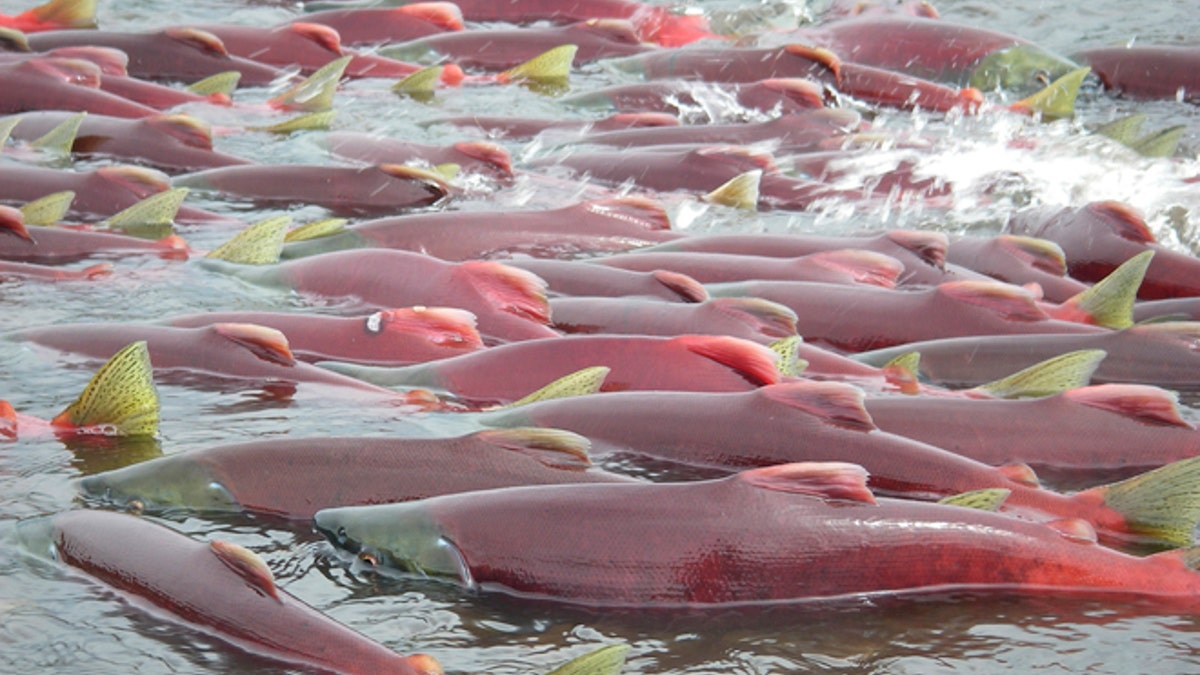
Sockeye salmon are seen in Bristol Bay, Alaska, in an undated handout picture provided by the Environmental Protection Agency (EPA). (Reuters/EPA Handoout)
Adding to the ubiquitous local opposition in Bristol Bay toward the mine are the financial problems that consistently have plagued the project.
Earlier in February, New York-based investment firm Kerrisdale Capital released a damning report on the state of Northern Dynasty – the Pebble deposit’s current owners.
The firm noted that the election of Donald Trump has fueled hopes that a more mining-friendly EPA will allow the project to move forward and that since Election Day, Northern Dynasty’s stock price has increased 326 percent. Nevertheless, it warned that the excitement over Pebble Mine was misguided.
“We believe Northern Dynasty is worthless,” the investment firm stated in its report, citing the departure from the project of many of the mining industry’s major players. “Though the legal and regulatory problems that will continue to plague the Pebble project even under a Trump presidency are enormous, the project’s Achilles’ heel is more fundamental: economics.”
A number of the world’s largest mining corporations have pulled out of the project, including Mitsubishi, Rio Tinto and Anglo American – the last of which had about $500 million in the project.
The Kerrisdale Capital report added: “With no economic value and huge political risks, Northern Dynasty is a zero.”
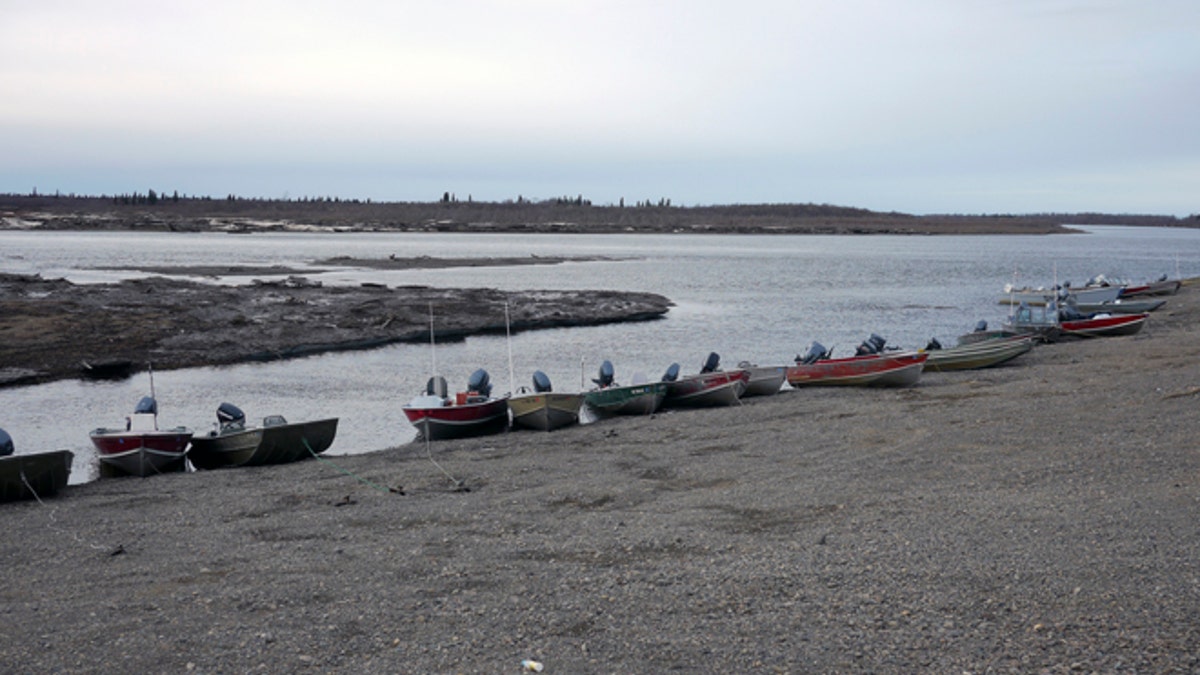
Fishing skiffs line the shore in New Stuyahok, Alaska, as seen in an undated handout picture provided by the Environmental Protection Agency (EPA). (Reuters/EPA handout)
Opponents of the project claim that the economic uncertainty behind the project -- not the EPA veto or the local opposition -- is the main reason why Northern Dynasty has not applied for a permit to begin mining the deposit.
The NRDC’s Reynolds said that while the company has remained quiet on why they have chosen not to apply for a permit – besides citing the Clean Water Act’s Section 404(c) – he believes that it is because Northern Dynasty is too small to develop the mine on its own.
“Maybe they don’t enough money or maybe they don’t have sufficient partners to go forward,” Reynolds said. “The only company left is this small Canadian company that is running out of money every quarter.”
The Trump administration has not weighed in publicly on the issue, but his appointment of Pruitt to the EPA – along with his stance on creating jobs through industries like coal mining and oil production – suggests he might favor the project.
One the other hand, some environmental lawyers assert, the president may see very little value in aiding a Canadian company in a project that is expected to bring few jobs to the American people and is opposed by 65 percent of the people in Alaska.
“Why would Trump or his people waste their time on a small Canadian company that doesn’t advance the interest of the U.S. people,” Reynolds said. “This is not even a popular project in Alaska.”


